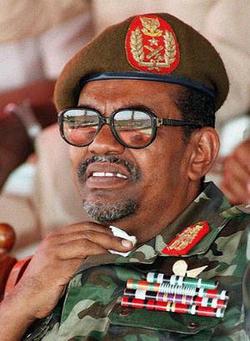YANGON (Reuters) - Myanmar's pro-democracy icon Aung San Suu Kyi is in good health and ready to defend herself against new charges that have sparked international outrage against the country's military rulers, her lawyer said.
Activists planned protests at Myanmar embassies around the world on Monday, when the Nobel Peace laureate faces a prison court accused of breaking the conditions of her house arrest set to expire on May 27 after six years of detention.
The American intruder who triggered the case against Suu Kyi and her two female companions by sneaking into her lakeside villa in Yangon is also expected to stand trial on several charges.
Suu Kyi's lawyer, Kyi Win, was allowed to meet her for one hour on Saturday at a guest house inside Insein Central Prison where she was taken last Thursday.
"She asked me to tell her friends and everyone that she is quite well," Kyi Win told Reuters. "She is ready to tell the truth that she never broke the law."
Police readied barricades outside the country's most notorious prison on Sunday, where Burmese dissidents have called for 'silent rallies' on Monday to protest against the trial.
Former student demonstrators and monks involved in 2007 street protests that were crushed by the military said in a joint statement they will "oppose this latest atrocity using any means until Daw Aung San Suu Kyi is freed."
If convicted, the 63-year-old Suu Kyi faces up to five years in jail.
Critics say the charges are aimed at keeping the charismatic opposition leader in detention ahead of the regime's promised multi-party elections in 2010.
Suu Kyi's National League for Democracy (NLD) won a landslide election victory in 1990 only to be denied power by the military, which has ruled the former Burma since 1962.
"The trial is all about keeping any voices of dissent silent in the run up to rigged elections next year," said Zoya Phan of the Burma Campaign UK, which said demonstrations would be held at Myanmar embassies in 20 cities around the world on Monday.
The generals have detained Suu Kyi for more than 13 of the past 19 years, much of that time at her Yangon home guarded by police, her phone line cut and visitors restricted.
Suu Kyi's doctor, Tin Myo Win, was freed late on Saturday after being detained for nine days over the incident at her home. He had been treating her for low blood pressure and dehydration, and activists fear for Suu Kyi's health in prison.
MYSTERY SWIMMER
John Yettaw, the U.S. citizen who used homemade flippers to swim to Suu Kyi's home, has been charged with immigration violations, encouraging others to break the law and entering a restricted area.
The motives for his latest bid to meet Suu Kyi are unclear.
Yettaw swam to her home on November 30 last year and left a copy of the Book of Mormon after she refused to see him, according to a copy of the police complaint translated by the U.S. Campaign for Burma , a pro-democracy group.
He tried again on the night of May 3.
"This time, Daw Aung San Suu Kyi allowed him to stay at her residence until the night of May 5, 2009, spoke with him and provided him food and drinks," the police complaint said.
Kyi Win said Suu Kyi had told Yettaw to leave, but he refused. She did not report him to authorities because 'she did not want anybody to get into trouble because of her', he said.
Speculation about Yettaw, described by state media as a 53-year-old psychology student from Missouri, and his role in the latest crackdown on Suu Kyi has swirled for days in Yangon .
"I think the regime must be behind this incident one way or another. They do not want to free Daw Suu," a retired politician, using the Burmese honorific for older women, said.
The junta has so far ignored the international outcry.
U.N. Secretary-General Ban Ki-moon has expressed 'grave concern' over the charges against Suu Kyi, but Burmese exiles and rights groups want the U.N. Security Council to act.
On Friday, U.S. President Barack Obama renewed sanctions against the military government, saying its actions and policies, including the jailing of more than 2,000 political prisoners, continued to pose a serious threat to U.S. interests.
Washington has led the West in tightening sanctions, but Asian neighbours with an eye on the country's rich timber, gas and mineral reserves have favoured a policy of engagement.
Neither policy has succeeded in coaxing meaningful reforms from junta leader Senior General Than Shwe, who is widely believed to loathe Suu Kyi.
He has vowed to press ahead with a seven-step "roadmap to democracy" expected to culminate in a 2010 election that the West says is a sham to entrench the military's grip.
(Additional reporting by Kittipong Soonprasert in BANGKOK; writing by Darren Schuettler; editing by Philippa Fletcher)
Rest of your post
Monday, May 18, 2009
Ready to defend herself against new charges
Subscribe to:
Post Comments (Atom)






















No comments:
Post a Comment